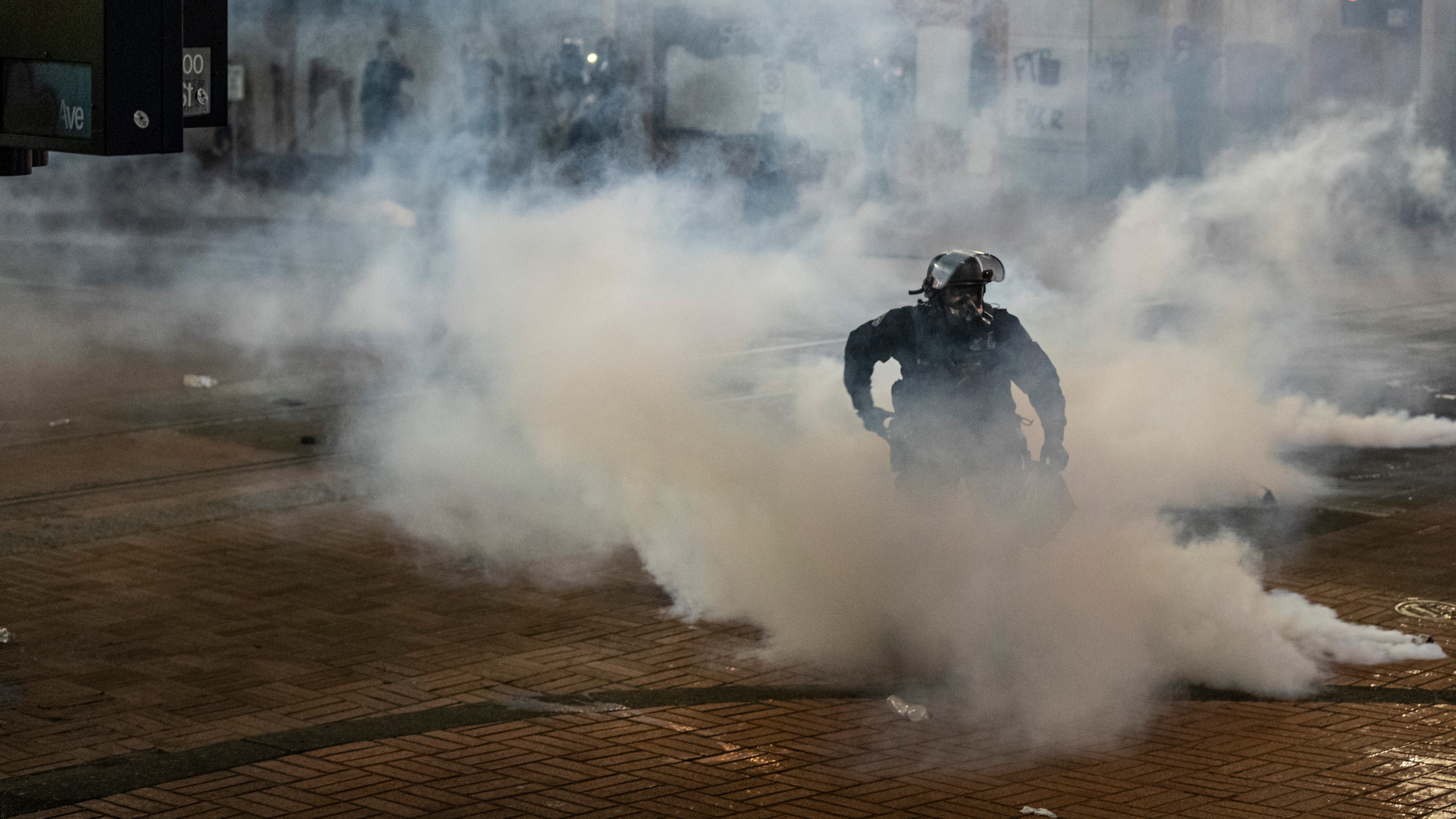Black activist group Don't Shoot Portland sued the city of Portland in federal court this afternoon, seeking to halt the Portland Police Bureau's use of various forms of tear gas to control protesters amid a local uprising against police brutality and racism.
"PPB has repeatedly used chemical agents ('tear gas') against crowds of protesters, including plaintiffs who had committed no criminal acts, posed no threat of violence to any person, and were merely engaged in protected speech," says the suit, filed in U.S. District Court in Portland. "The use of tear gas is particularly dangerous at the present time because it is specifically designed to irritate the respiratory system and to cause people to expel mucus and aspirated saliva."
The suit filed on behalf of the activist nonprofit, as well as the individuals Nicholas J. Roberts and Michelle "Misha" Belden, alleges violations of the protesters' constitutional rights to free speech and probable cause of the First and Fourth Amendments. Both individuals allege in the lawsuit they were peacefully and lawfully protesting and yet were subjected to tear gas.
"The 1993 International Chemical Weapons Convention, Geneva, bans tear gas from use by military forces during war," the complaint states.
Teressa Raiford, a founder of Don't Shoot Portland who ran for mayor this May, says deploying gas during the COVID-19 pandemic is nonsensical and cruel.
"We're out screaming for justice for Black people and asking the state to stop its violence against us, and the city responds by using tear gas when we're in the middle of a pandemic of respiratory disease," said Raiford in a statement. "This just demonstrates that they don't care about the harm they're causing, and that they are willing to literally kill us for standing up. For weeks we've been told to protect against the coronavirus, and we have shut down the country to achieve that. Now suddenly the city doesn't care about the risks of COVID-19 when we are fighting for our lives."
The lawsuit follows calls from City Commissioners Chloe Eudaly and Jo Ann Hardesty that police stop using tear gas. Both cited the health effects of a respiratory irritant during a pandemic. Today, Mayor Ted Wheeler said he would support halting the police use of tear gas if it wouldn't lead to more aggressive police tactics. (Advocates argue that's already the city's policy, and the mayor just has to enforce it.)
This afternoon, Seattle Mayor Jenny Durkan paused the use of tear gas there.
Wheeler's office declined comment on pending litigation.
The suit seeks a temporary injunction against the use of tear gas and then a permanent ban on the city using it at police protests.
"It's simple, what we have seen is the government's failure to listen to the people who are in the streets and listen to what they're demanding," says Juan Chavez, one of the attorneys for the plaintiffs. "Instead what they did was send a militarized response into the streets of Portland, and a lot of people were hurt by that. I don't think it stopped any of the things that they said they were trying to stop. Tear gas is the definition of indiscriminate force."
Chavez says the city has not used it at all protests, and he says the last time he recalls Portland using tear gas is the day that Portlanders protested the inauguration of President Donald Trump in 2017.
"Tear gas is unique in some respects," he says. "You don't see it in war zones. You only see it in dictatorships that are falling."
